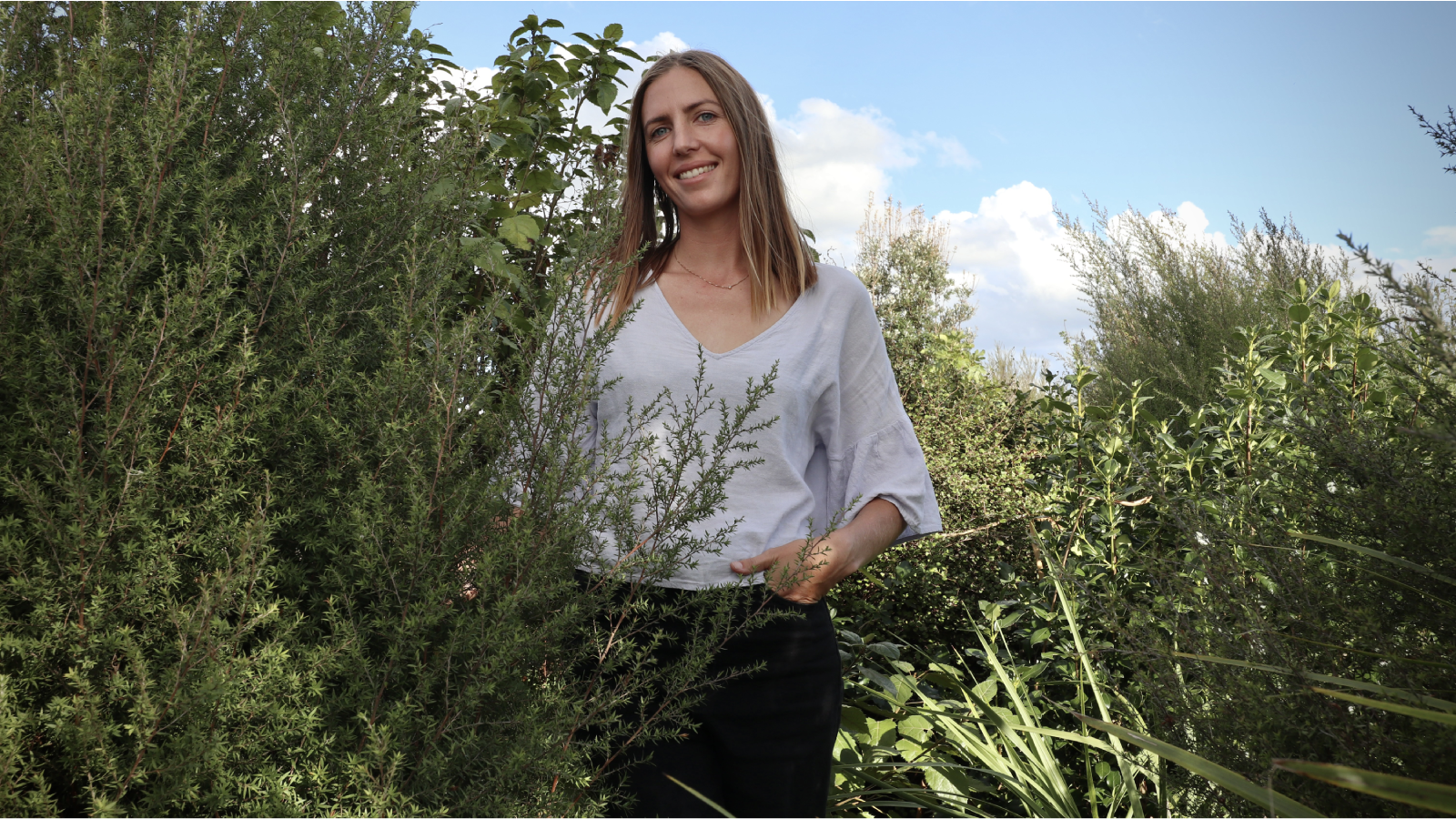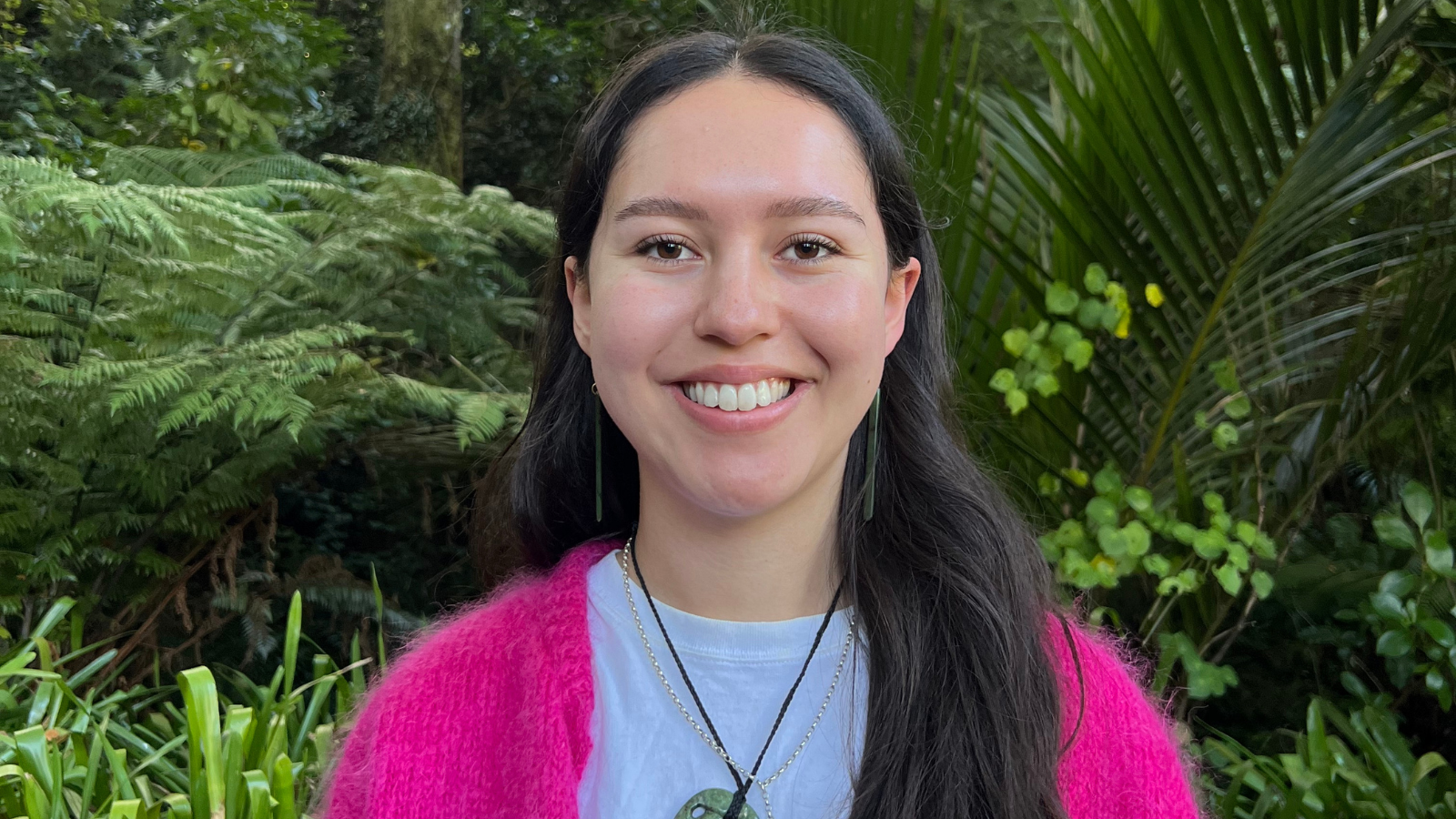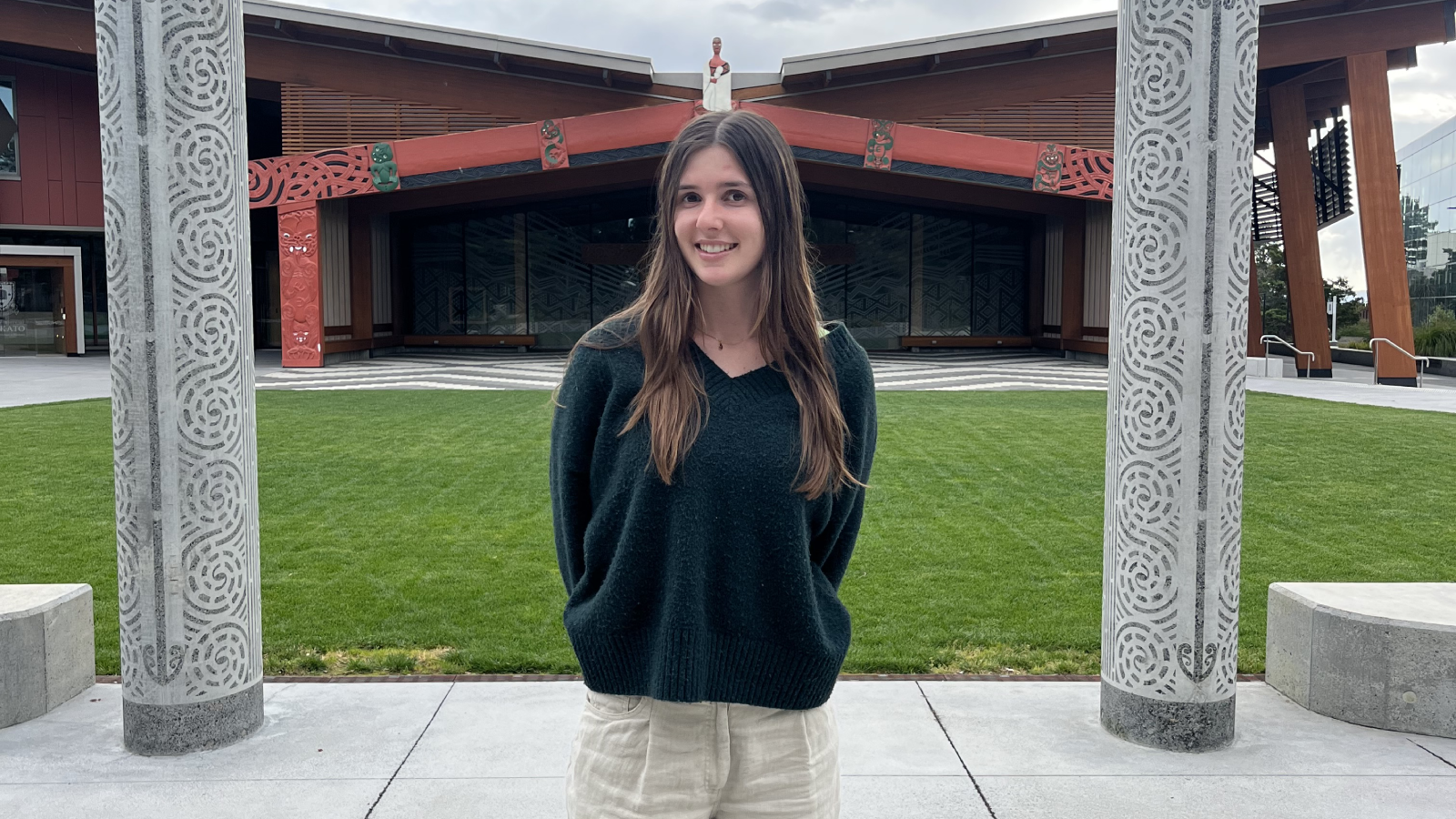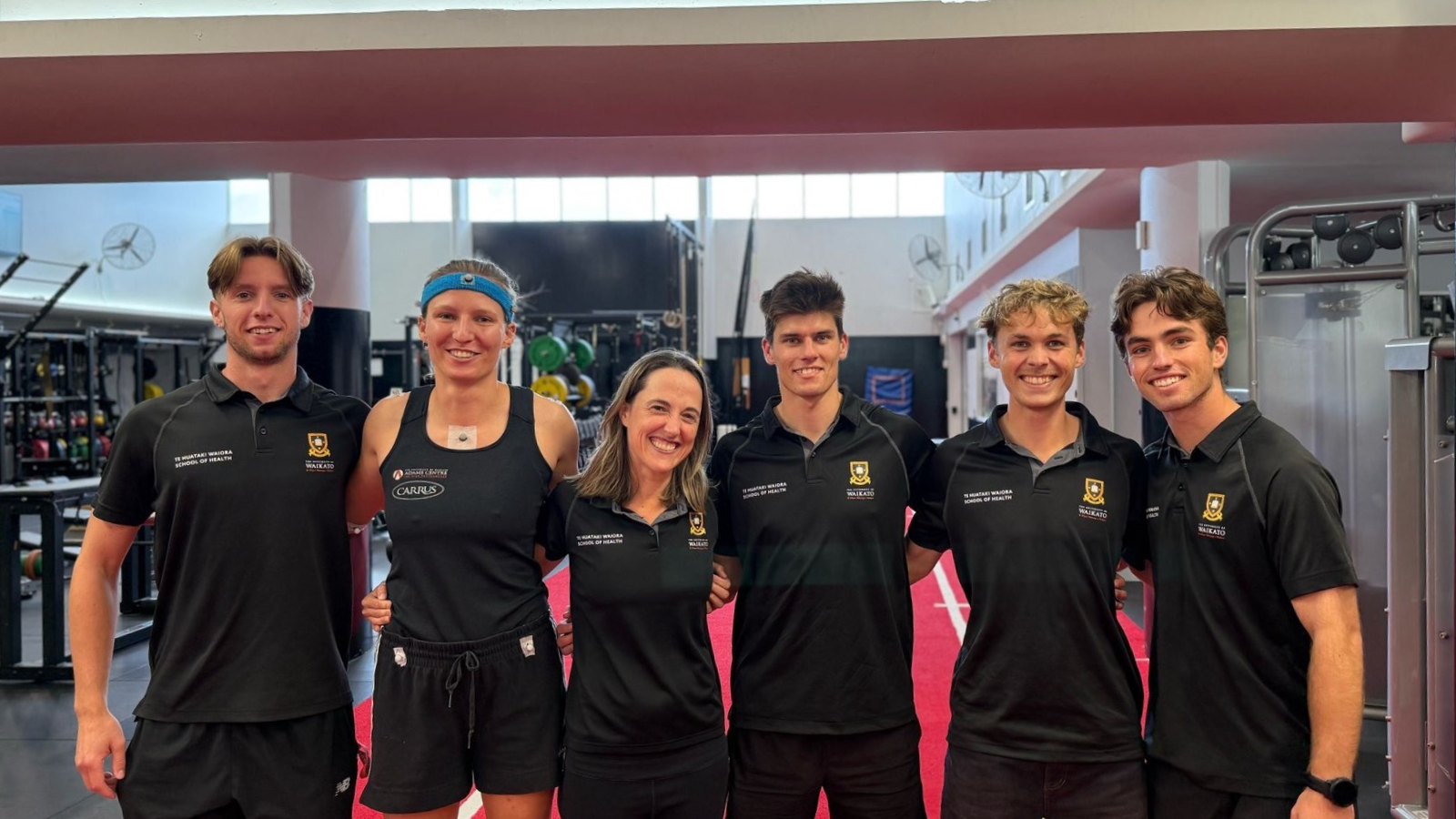
Dr Andreea Calude spoke at the Flemish Parliament about her research in her role as Lonnoy Chair in Multilingualism at the Brussels Centre for Language Studies at Vrije Universiteit Brussels.
A three-year study led by the University of Waikato is set to uncover how English-speaking primary school pupils incorporate Māori loanwords into their everyday language, offering valuable insights into New Zealand’s evolving linguistic landscape.
Led by Dr Andreea Calude, Associate Professor in the School of Psychological and Social Sciences, the project aims to explore how children aged 8-11 in mainstream English language education engage with Māori words that are increasingly used in daily conversation. As part of the Marsden-funded research, Dr Calude and her team have been investigating how children perceive and use kupu Māori, and how these loanwords reflect broader social and cultural shifts.
"We’re seeing more and more Māori words like ‘hui’, ‘aroha’, and ‘kaitiaki’ entering New Zealand English, especially in the education sector, but we still know little about the exact amount of exposure that children have and about the extent to which this translates into knowledge or use."
Dr Andreea Calude.
"Crucially, we don’t know what social meanings children attach to Māori words. So, this research is about understanding how children are using these words and what that means for the future of our language.”
A current focus of the project is examining the linguistic landscapes of New Zealand classrooms. The team is completing the first stage of research, which involves PhD student Jessie Burnette (whose PhD is funded by the Marsden) photographing classroom walls in five Hamilton schools to see which Māori words are prominently displayed. The next phase will determine which words students actively know and produce, and how they associate these words with social characteristics such as trustworthiness, friendliness or prestige.
The first part of the research will be published in early 2025, as a chapter in an international book on developmental sociolinguistics.
Dr Calude’s team, which includes Associate Investigators Professor Hēmi Whaanga (Ngāti Kahungunu, Ngāi Tahu, Ngāti Mamoe, Waitaha) from Massey University and Belgium-based Dr Eline Zenner from KU Leuven and Dr Laura Rosseel from Vrije Universiteit Brussel, plan to interview several hundred primary school pupils during the project which has another two years to complete.
Dr Calude says initial findings show that while there are some core Māori words used across schools, there is significant variation in usage depending on the various factors, such as individual teachers and materials present in the classroom.
“We’ve seen different words pop up in different classrooms, but there’s definitely a core set that most students are exposed to.”
Dr Andreea Calude.
The research is timely as the use of Māori loanwords is becoming more common across New Zealand English. The project also taps into broader questions about language change in language contact situations, and how younger generations may be driving such changes.
The study’s findings are expected to contribute to the growing field of developmental sociolinguistics and provide deeper insights into how languages evolve through contact.
This year, Dr Calude is also the Lonnoy Chair in Multilingualism at the Brussels Centre for Language Studies at Vrije Universiteit Brussel. She is in Belgium until November and her inaugural talk took place at the Vlaams Parlement (Flemish Parliament) in Brussels. Belgium, a highly multilingual country, in which Dutch, French and German are all official languages has wide experience with languages in contact. Formed in 1995, the Flemish Parliament overseas a number of areas of importance to the Flemish people, including language policies. In an open public lecture entitled: ‘New Zealand English: a story of language contact and language mixing’, Dr Calude explored her research in multilingualism and how the speakers of different languages influence each other.
“The English language is associated with prestige here in Brussels, being a global lingua franca. But English is of course not ‘one’ language, as different English-speaking peoples use their own variant of English. It’s not something we necessarily dwell on in our everyday use of Kiwi English in New Zealand so there are interesting dynamics in play when we consider the global status of English,” says Dr Calude.
She also holding five other public lectures exploring ‘English at the edge of the world in New Zealand’, ‘Attitudes to New Zealand English’ and ‘Te Reo Māori: the Indigenous language of New Zealand’, in a series of workshops with Belgium students and exploring opportunities for joint research as well as a pathway for university student exchanges between the University of Waikato and Vrije Universiteit Brussels.



